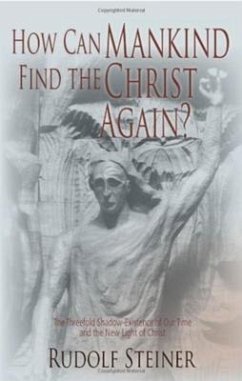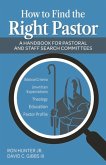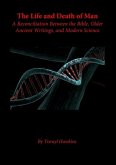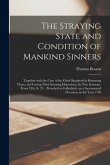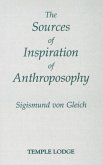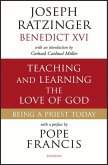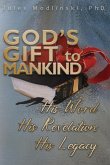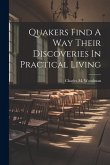Rudolf Steiner
How Can Mankind Find the Christ Again?
The Threefold Shadow-Existence of Our Time and the New Light of Christ (Cw 187)
Rudolf Steiner
How Can Mankind Find the Christ Again?
The Threefold Shadow-Existence of Our Time and the New Light of Christ (Cw 187)
- Broschiertes Buch
- Merkliste
- Auf die Merkliste
- Bewerten Bewerten
- Teilen
- Produkt teilen
- Produkterinnerung
- Produkterinnerung
Translated by Olin Wannamaker, Frances E. Dawson, and Gladys Hahn.
Andere Kunden interessierten sich auch für
![How to Find the Right Pastor How to Find the Right Pastor]() Hunter Jr RonHow to Find the Right Pastor13,99 €
Hunter Jr RonHow to Find the Right Pastor13,99 €![The Life and Death of Mankind The Life and Death of Mankind]() Yisrayl HawkinsThe Life and Death of Mankind7,99 €
Yisrayl HawkinsThe Life and Death of Mankind7,99 €![The Straying State and Condition of Mankind Sinners: Together With the Care of the Chief Shepherd in Returning Them; and Curing Their Straying Disposi The Straying State and Condition of Mankind Sinners: Together With the Care of the Chief Shepherd in Returning Them; and Curing Their Straying Disposi]() Thomas BostonThe Straying State and Condition of Mankind Sinners: Together With the Care of the Chief Shepherd in Returning Them; and Curing Their Straying Disposi15,99 €
Thomas BostonThe Straying State and Condition of Mankind Sinners: Together With the Care of the Chief Shepherd in Returning Them; and Curing Their Straying Disposi15,99 €![Sources of Inspiration of Anthroposophy Sources of Inspiration of Anthroposophy]() Sigismund Von GleichSources of Inspiration of Anthroposophy10,99 €
Sigismund Von GleichSources of Inspiration of Anthroposophy10,99 €![Teaching and Learning the Love of God Teaching and Learning the Love of God]() Joseph RatzingerTeaching and Learning the Love of God18,99 €
Joseph RatzingerTeaching and Learning the Love of God18,99 €![God's Gift to Mankind God's Gift to Mankind]() Jules ModlinskiGod's Gift to Mankind17,99 €
Jules ModlinskiGod's Gift to Mankind17,99 €![Quakers Find A Way Their Discoveries In Practical Living Quakers Find A Way Their Discoveries In Practical Living]() Quakers Find A Way Their Discoveries In Practical Living21,99 €
Quakers Find A Way Their Discoveries In Practical Living21,99 €-
-
-
Produktdetails
- Produktdetails
- Verlag: Steiner Books
- Erscheinungstermin: 1. Mai 1984
- Englisch
- Abmessung: 214mm x 145mm x 13mm
- Gewicht: 268g
- ISBN-13: 9780880100793
- ISBN-10: 0880100796
- Artikelnr.: 23282377
- Herstellerkennzeichnung
- Libri GmbH
- Europaallee 1
- 36244 Bad Hersfeld
- gpsr@libri.de
- Verlag: Steiner Books
- Erscheinungstermin: 1. Mai 1984
- Englisch
- Abmessung: 214mm x 145mm x 13mm
- Gewicht: 268g
- ISBN-13: 9780880100793
- ISBN-10: 0880100796
- Artikelnr.: 23282377
- Herstellerkennzeichnung
- Libri GmbH
- Europaallee 1
- 36244 Bad Hersfeld
- gpsr@libri.de
Rudolf Steiner (b. Rudolf Joseph Lorenz Steiner, 1861-1925) was born in the small village of Kraljevec, Austro-Hungarian Empire (now in Croatia), where he grew up. As a young man, he lived in Weimar and Berlin, where he became a well-published scientific, literary, and philosophical scholar, known especially for his work with Goethe's scientific writings. Steiner termed his spiritual philosophy anthroposophy, meaning "wisdom of the human being." As an exceptionally developed seer, he based his work on direct knowledge and perception of spiritual dimensions. He initiated a modern, universal "spiritual science" that is accessible to anyone willing to exercise clear and unbiased thinking. From his spiritual investigations, Steiner provided suggestions for the renewal of numerous activities, including education (general and for special needs), agriculture, medicine, economics, architecture, science, philosophy, Christianity, and the arts. There are currently thousands of schools, clinics, farms, and initiatives in other fields that involve practical work based on the principles Steiner developed. His many published works feature his research into the spiritual nature of human beings, the evolution of the world and humanity, and methods for personal development. He wrote some thirty books and delivered more than six thousand lectures throughout much of Europe. In 1924, Steiner founded the General Anthroposophical Society, which today has branches around the world.

